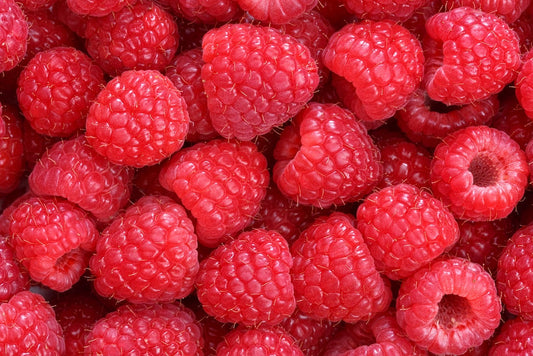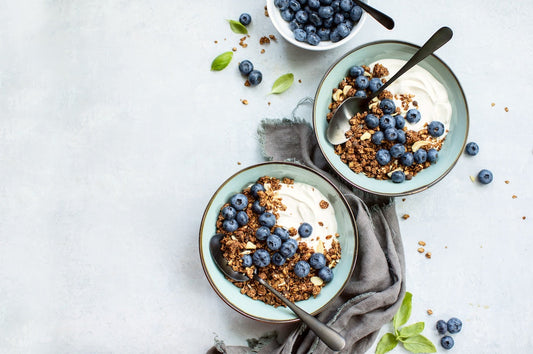Date palms, often referred to as the “bread of the desert,” are more than just tasty fruit. The fruit of the date palm offers an impressive list of nutrients that make it a coveted superfood in cultures worldwide – from Saudi Arabia and Iran to Germany.
Dates – everything you need to know
Dates: a look at their origin
The main areas where date palms are grown are in Saudi Arabia, Iran, the United States, Egypt and North Africa. They produce different types of dates, of which Medjool and Deglet are particularly popular. These varieties differ not only in flavor and texture, but also in their specific nutritional information.
What's in a date? The nutritional information
Dates are real powerhouses. One gram of dates contains a variety of vitamins and minerals. The calorie content of dried dates (about 280 calories/100 g) is sometimes higher than that of fresh dates (about 140 calories/100 g), due to the reduced water content of dried fruits. Read more about the calories of dates.
Here you will find an overview of the nutritional values of dates:
| Calories (kcal) | 294 kcal |
| Carbohydrates | 66 g |
| of which sugar | 41 g |
| Proteins | 2.6 g |
| Fats | 0.4 g |
| of which saturated fatty acids | 0.3 g |
| Dietary fiber | 8 g |
| Salt | 0 g |
Nutritional information about dates
Vitamins in dates
Dates are rich in B vitamins such as vitamin B1, vitamin B2 and vitamin B6. These vitamins support the energy metabolism and help to convert food into energy.
Dates are also a source of vitamin A, beta-carotene and vitamin C. These antioxidants protect our cells from free radicals.
Here are the vitamins and other valuable ingredients of dates at a glance:
- Vitamin B
- Vitamin B1
- Vitamin B2
- Vitamin B6
- Vitamin A
- Beta-carotene
- Vitamin C
- Amino acid tryptophan
Minerals and trace elements
Manganese is also found in dates and supports the metabolism and bone structure. They are also rich in folic acid, which is particularly important during pregnancy, and niacin, which keeps the skin and internal organs healthy.
Dates as a natural source of energy
Thanks to their high fructose content, dates are a quick source of energy. This property, combined with the amino acid tryptophan, can help with cravings and at the same time increase general well-being.
Dates in modern nutrition
In Germany and other Western countries, dates are becoming more and more popular. They can be enjoyed pure, integrated into dried fruit mixtures or combined with nuts. Their sweetness and high sugar content also make them a popular ingredient in many healthy snack recipes.
The global challenges of date cultivation
With the growing popularity of dates, demand for them is also increasing. Due to the increasing water scarcity in the countries of origin, the growing international demand, especially from affluent countries, is definitely an increasing problem, as the water scarcity is increasing due to growing plantations.
For this reason, it is particularly important to pay attention to the origin of the dates that are on the menu every day. Paying attention to organic certificates can be an important step here in order to obtain information about both the quality and the production conditions of dates.
Dried dates in Verival products – natural sugar substitute
The nutritional value of dates makes them an indispensable part of a balanced diet. These sweet fruits not only offer health benefits but are also a testament to the beauty and resilience of nature.
We at Verival use dried dates as a natural sugar substitute. They provide a naturally sweet taste reminiscent of a mixture of caramel and marzipan. We always ensure that they are organic in order to meet our high standards in terms of health and sustainability.
Dates – find out everything there is to know!
Frequently asked questions
What makes dates a “superfood”?
Thanks to their abundance of vitamins, minerals and antioxidants, dates offer a variety of health benefits that make them a true superfood.
How do the calories of fresh and dried dates differ?
Dried dates have a higher calorie content than fresh ones due to their reduced water content.
Are dates suitable for diabetics?
Although dates have a high fructose content, they have a low glycemic index. Nevertheless, consumption should be discussed with a nutrition professional.
Where do most of the dates sold in the UK come from?
Most of the dates sold in the UK come from countries such as Saudi Arabia, Iran and North Africa.
What vitamins and minerals are found in dates?
Dates are rich in B vitamins, vitamin A, vitamin C, manganese and many other essential nutrients.
























